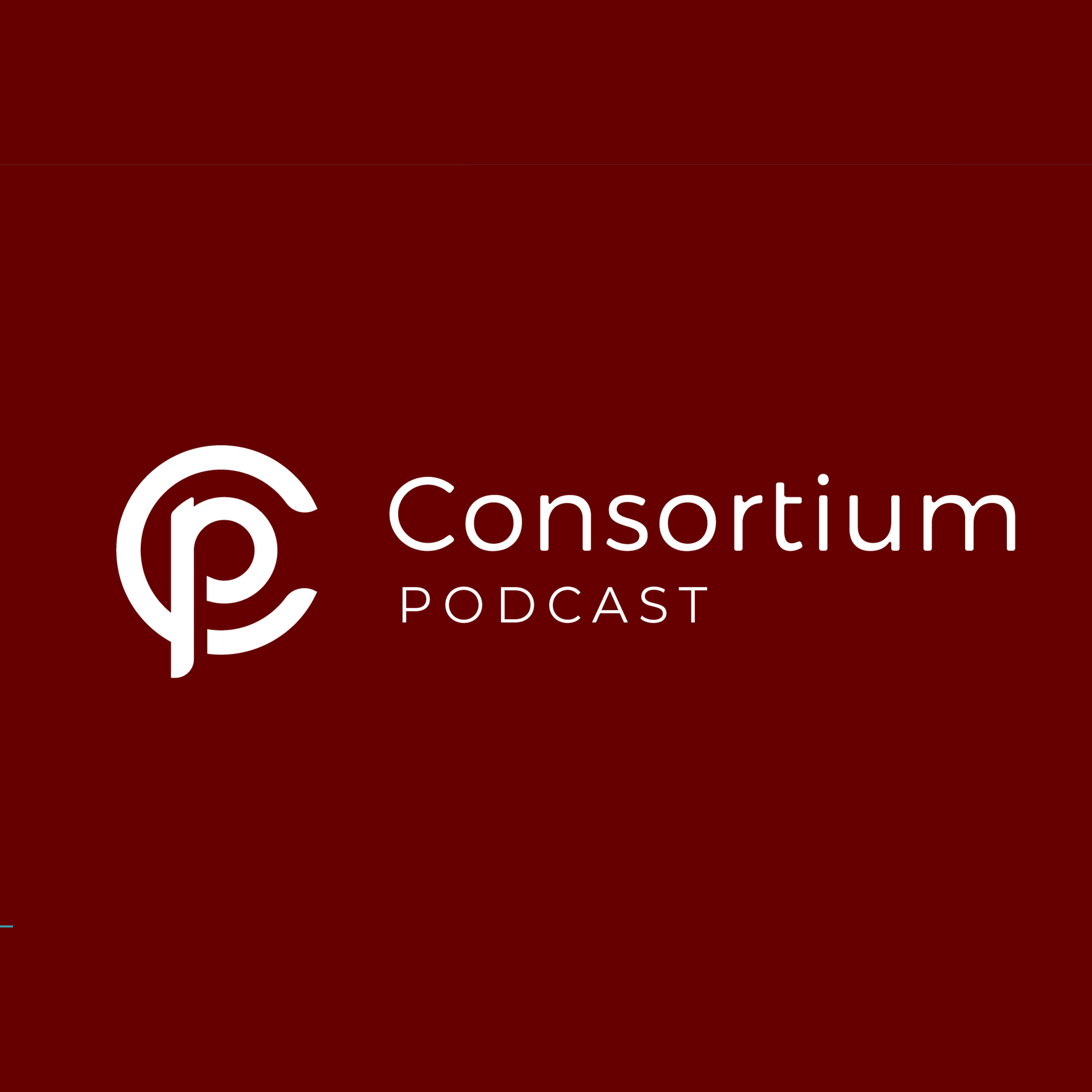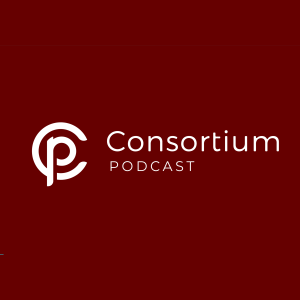
18.7K
Downloads
73
Episodes
An Academic Audio Blog. The Kepler Consortium is a band of classical Christian teachers unified by a shared vision for student flourishing.
An Academic Audio Blog. The Kepler Consortium is a band of classical Christian teachers unified by a shared vision for student flourishing.
Episodes

Thursday Jul 15, 2021
Understanding and Critiquing Critical Theory in Education and Culture
Thursday Jul 15, 2021
Thursday Jul 15, 2021
This is Episode 23 of the Consortium Podcast, an academic audio blog of Kepler Education.
The widespread notions of cultural appropriation, political correctness, outrage culture, identity politics, and cancel culture did not arrive on the scene in the late 2010s in a vacuum. What is today colloquially known as “woke mentality” stems from a postmodern-academic-ideology-turned-activism known as Critical Theory and its being aggressively propagated in schools and other cultural outlets.
In this episode, Scott and Joffre discuss the origins and consequences of Critical theory in its various manifestations and suggest the most practical thing we can do to fight back is to stand up to it with the gospel of Jesus Christ and Christ-centered education.
Critical theory has gone beyond activism and social media movements and instigated the widespread notion of cultural appropriation, political correctness, outrage culture, identity politics, and cancel culture. And under the umbrella of Social Justice Theory, it has become insidious in the culture at large manifesting itself in the various theories and movements like Disability and Fat Studies, Queer Theory, Postcolonial Theory, Critical Racial Theory, and Gender Studies.
Not only is this "other gospel" being propagated in hollywood and behemoth corporations, but churches are adopting forms of it and legislators across the nation are attempting to have critical theories incorporated into the curriculum as the accepted worldview.
To learn more about Classical Christian Education, visit https://kepler.education
*Definitions and descriptions for this episode are taken from Cynical Theories: How Activist Scholarship Made Everything about Race, Gender, and Identity - and Why This Harms Everybody by Helen Pluckrose and James Lindsay.

Friday Jul 09, 2021
The Four Levels of Reading
Friday Jul 09, 2021
Friday Jul 09, 2021
This is Episode 22 of the Consortium Podcast, an academic audio blog of Kepler Education.
Reading is fundamental to an education. It is the intellectual backbone of every literate person. If one cannot read, one cannot be educated, as least in the liberal arts sense of being educated. But reading is difficult for some people and reading challenging, dense texts doesn't make the task any easier.
In this episode, Scott and Joffre discuss and break down the Four Levels of Reading as taught by Mortimer J. Adler in his acclaimed work, How to Read a Book. Learning to implement these four levels of reading will help us reach above our heads, intellectually, and grasp the meaning of difficult ideas, thus strengthening our intellect and broadening our understanding. In other words, mastering the four levels of intellectual reading will help us become autodidactic.
To learn more about Classical Christian Education, visit https://kepler.education

Friday Jul 02, 2021
A Rising Tides Lifts All Boats
Friday Jul 02, 2021
Friday Jul 02, 2021
This is Episode 21 of the Consortium Podcast, an academic audio blog of Kepler Education.
In this episode, Scott and Joffre discuss the importance of collaboration in Classical Christian Education because education in central to building up the kingdom of Christ: recovering a virtuous cultural and fighting the battle for the hearts and minds of the children of the Saints.
Too often, Christians tend to silo and huddle around personal agendas and secondary and tertiary beliefs instead of working together for the glory of God and the advancement of the gospel in education and culture. To jump between metaphors, while we need to be cultivating our own proverbial gardens it's also essential that Christians collaborate for the greater good of gardening and agriculture in general. If Classical Christian Education is good, then it's good for everyone.
To learn more about Classical Christian Education, visit https://kepler.education

Wednesday Jun 16, 2021
The Vital Importance of Rhetoric in the Age of Cancel Culture
Wednesday Jun 16, 2021
Wednesday Jun 16, 2021
This is Episode 20 of the Consortium Podcast, an academic audio blog of Kepler Education.
In this episode, Scott and Joffre discuss the Art of Rhetoric, including misconceptions about what it means, and why it's so important for students to study in the modern age of cancel culture.
Being apt in the art of rhetoric is part of what it means to be fully human. To be an apt rhetorician is to be able to speak truth with our lives and with our words about the world and into the world.
To help students develop in the art of rhetoric, Kepler offers courses in rhetoric and hosts an annual Summer Speech Competition with an opportunity to compete for the Leonberg Prize for Excellence in Rhetoric.

Thursday Jun 10, 2021
Nobody's Coming: Students Taking Personal Responsibility For Their Education
Thursday Jun 10, 2021
Thursday Jun 10, 2021
This is Episode 19 of the Consortium Podcast, an academic audio blog of Kepler Education.
In this episode, Scott and Joffre discuss how educators, especially homeschooling families, have the most potential for cultivating both work ethic and creativity in their students' character. "Adulting" is hard and we don't always have an elegant solution for the challenges life providentially brings our way. Sometimes it takes extra effort, sheer hard work, or just starting the task and plodding ahead when we don't know all the answers.
But the first thing we need to embrace for success in education is the good philosophy that no one is coming! That is, no one can do it for us. That doesn't meant we can't ask for help but it does mean we have to take the responsibility for getting the help we need and doing the work that needs to be done.
Learn more about Kepler Education at https://kepler.education.

Thursday May 27, 2021
Free Market Education: The Kepler Model for Classical Christian Education
Thursday May 27, 2021
Thursday May 27, 2021
This is Episode 18 of the Consortium Podcast, an academic audio blog of Kepler Education.
In this episode, Scott and Joffre are joined by Kepler CEO, Daniel Foucachon, to discuss the Kepler Model, a free-market approach to classical Christian education that empowers families by liberating teachers.
A unique feature of this episode is that we unpack a review by homeschooling blogger, Erin Cox of Life, Abundantly Blog, who understands the model and shares her experience with Kepler Education.

Thursday May 20, 2021
Three Essential (But Often Overlooked) Qualities of a Good Teacher
Thursday May 20, 2021
Thursday May 20, 2021
This is Episode 17 of the Consortium Podcast, an academic audio blog of Kepler Education.
Since parents are responsible for their child's education, it's helpful if parents both know how to be good teachers and how to identify good teachers for their children when it's appropriate to hire one. In his book, The Truth of Things: Liberal Arts and the Recovery of Reality, Marion Montgomery notes,
"The good teacher must accept as a starting point an alumni association of parents who generally cannot make a distinction between intellectual accomplishment and moral goodness. Then he must, soundly and according to his intellectual principles, insist upon judging intellect."
In other words, a good teacher knows the end and scope of his vocation and does his work with excellence regardless of the democratic impulses that tend to interfere with that good work.
In this episode, Scott and Joffre discuss these three essential but often overlooked qualities of a good teacher.

Thursday May 13, 2021
The Way to Make Thy Son Rich: The True Purpose of an Education
Thursday May 13, 2021
Thursday May 13, 2021
This is Episode 16 of the Consortium Podcast, an academic audio blog of Kepler Education.
Aristotle famously noted that poetry is more philosophical than history because while history teaches what man has done in particular, poetry teaches us what he can and might do universally. This quite evident in George Herbert's Poem, "The Church-Porch." In this Episode, Scott Postma and Joffre Swait unpack a few stanzas of Herbert's delightful poem and discuss the perennial human questions--really, the causes and effects--centered around raising children, education, and its effects on society. One important note Herbert makes--The way to make thy sonne rich, is to fill His minde with rest, before his trunk with riches:--alludes to one of our most championed causes in education--Scholé (restful learning) before job training.
George Herbert's "The Church-Porch" from The Temple, stanzas 16-19:
O England! full of sinne, but most of sloth;
Spit out thy flegme, and fill thy brest with glorie:
Thy Gentrie bleats, as if thy native cloth
Transfus’d a sheepishnesse into thy storie:
Not that they all are so; but that the most
Are gone to grasse, and in the pasture lost.
This losse springs chiefly from our education.
Some till their ground, but let weeds choke their sonne:
Some mark a partridge, never their childes fashion:
Some ship them over, and the thing is done.
Studie this art, make it thy great designe;
And if Gods image move thee not, let thine.
Some great estates provide, but doe not breed
A mast’ring minde; so both are lost thereby:
Or els they breed them tender, make them need
All that they leave: this is flat povertie.
For he, that needs five thousand pound to live,
Is full as poore as he, that needs but five.
The way to make thy sonne rich, is to fill
His minde with rest, before his trunk with riches:
For wealth without contentment, climbes a hill
To feel those tempests, which fly over ditches.
But if thy sonne can make ten pound his measure,
Then all thou addest may be call’d his treasure.

Thursday May 06, 2021
Online Education and the Reclamation of the Idea of a University
Thursday May 06, 2021
Thursday May 06, 2021
This is Episode 15 of the Consortium Podcast, an academic audio blog of Kepler Education.
Cardinal John Henry Newman said that “A University seems to be in its essence, a place for the communication and the circulation of thought, by means of personal intercourse, through a wide extent of country." When we use the word University in the academic sense, we are technically shortening the phrase, universitas magistrorum et scholarium, meaning a "community of masters and scholars."
In this episode, Scott and Joffre discuss Cardinal Henry Newman's Idea of a University and how online education might be the best place to cultivate intentional academic communities for families and students amidst the demise of the modern educational system. In addition, they discuss not only the benefits but the pitfalls of online education and how to navigate this fairly new medium wisely and safely.

Thursday Apr 29, 2021
Language Acquisition with Jonathan Roberts and the Ancient Language Institute
Thursday Apr 29, 2021
Thursday Apr 29, 2021
This is Episode 14 of the Consortium Podcast, an academic audio blog of Kepler Education.
In this episode, Scott and Joffre talk with Jonathan Roberts of the Ancient Language Institute about the best approaches to language acquisition and the benefits of learning ancient languages when obtaining a liberal arts education.
Kepler Education offers a number of language courses, both ancient and modern, for 5th grade all the way up to adult learners.
